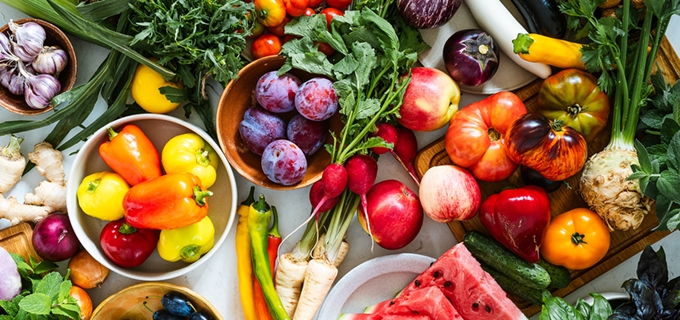Search for a doctor or hospital in your network.


Search for a doctor or hospital in your network.

Get News & Updates Directly To Your Inbox
Our brains work better when we eat nutrient-rich food. So yes, there are foods that are bad for your brain.
The best foods for brain health might not surprise you. You may have heard about them for years. But it may seem like keeping track of them and making sure they’re in your diet is too hard.
There is one simple dietary change you can make to help your brain. Cutting just one type of food from the menu can be a big boost for your brain health. And it can improve your overall physical and mental wellness at the same time.
Studies show that ditching ultra-processed foods might be the top tip for keeping food from taking a toll on your brain. These types of foods are linked to many physical and mental health problems.
Highly processed foods are linked to reduced memory and thinking. Research shows that:
Ultra or highly processed foods are often packaged goods with a long shelf file. Or they’re quick to eat and have a long list of ingredients.
Greater processing means a greater loss of nutrients. And adding some other ingredients reduces the nutritional benefits of food even more, says Columbia University Irving Medical Center. ![]() Those add-ins start negative neurological changes in brain structure and functions. Some include:
Those add-ins start negative neurological changes in brain structure and functions. Some include:
To weed out highly processed foods skip those with:
Some common examples of these foods include:
Food plans that help reduce heart disease may also reduce the risk of mental decline and other brain health issues. Some examples include the MIND diet, which blends DASH (Dietary Approaches to Stop Hypertension) and the Mediterranean diet.
The Mediterranean style of eating has been shown to aid brain health, according to the UCLA Steve Tisch BrainSPORT Program, ![]() which helps people with traumatic brain injury (TBI). That includes high amounts of fruits, vegetables, grains, legumes and nuts. Omega-3 fatty acids in fish are especially good for brain health. Many people who eat this way also cut down on meat and dairy products.
which helps people with traumatic brain injury (TBI). That includes high amounts of fruits, vegetables, grains, legumes and nuts. Omega-3 fatty acids in fish are especially good for brain health. Many people who eat this way also cut down on meat and dairy products.
Brain-Friendly Foods
Look for powerhouse foods linked to better brain health:
Take a step toward protecting your brain health by making changes to the foods you eat most. Talk to your doctor before you start a new eating plan to find out what is best for you and your health.
Blue Cross and Blue Shield of Oklahoma, a Division of Health Care Service Corporation,
a Mutual Legal Reserve Company, an Independent Licensee of the Blue Cross and Blue Shield Association
© Copyright 2026 Health Care Service Corporation. All Rights Reserved.
Verint is an operating division of Verint Americas, Inc., an independent company that provides and hosts an online community platform for blogging and access to social media for Blue Cross and Blue Shield of Oklahoma.
![]() File is in portable document format (PDF). To view this file, you may need to install a PDF reader program. Most PDF readers are a free download. One option is Adobe® Reader® which has a built-in screen reader. Other Adobe accessibility tools and information can be downloaded at https://www.adobe.com/trust/accessibility.html.
File is in portable document format (PDF). To view this file, you may need to install a PDF reader program. Most PDF readers are a free download. One option is Adobe® Reader® which has a built-in screen reader. Other Adobe accessibility tools and information can be downloaded at https://www.adobe.com/trust/accessibility.html. ![]()
![]() You are leaving this website/app ("site"). This new site may be offered by a vendor or an independent third party. The site may also contain non-Medicare related information. Some sites may require you to agree to their terms of use and privacy policy.
You are leaving this website/app ("site"). This new site may be offered by a vendor or an independent third party. The site may also contain non-Medicare related information. Some sites may require you to agree to their terms of use and privacy policy.
Powered by Verint